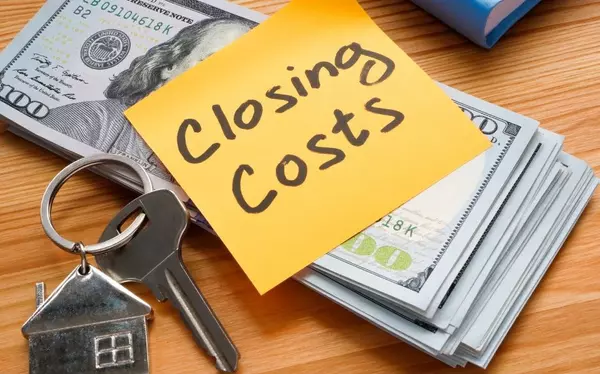10 Things Not to Do When Selling a House

10 Things Not to Do When Selling a House
Introduction
Selling a house can be an exhilarating yet daunting experience. As homeowners embark on this journey, they're met with a whirlwind of emotions and tasks. However, amidst the excitement, it's crucial to remain mindful of the potential pitfalls that could hinder a successful sale. From pricing missteps to neglecting crucial repairs, each decision plays a pivotal role in shaping the outcome of the selling process. Therefore, understanding what not to do can be just as important as knowing what to do. In this guide, we'll explore ten common mistakes that sellers should avoid at all costs. By recognizing and steering clear of these pitfalls, homeowners can navigate the selling process with confidence and increase their chances of achieving a smooth and lucrative sale. So let's dive in and uncover the essential "do nots" of selling a house.
1st Neglecting Curb Appeal
Neglecting curb appeal can be a critical misstep when selling a house, as it sets the tone for a potential buyer's first impression. Research shows that within seconds of arriving, buyers form opinions about a property based on its exterior. Therefore, a shabby exterior could deter otherwise interested parties. To avoid this, homeowners should focus on enhancing their property's curb appeal. Simple steps like freshening up the landscaping, applying a fresh coat of paint to the front door, and tidying up the driveway can make a significant difference. Additionally, investing in outdoor lighting or adding potted plants can add a touch of warmth and charm. These improvements don't have to break the bank; often, a little effort and creativity can go a long way. By prioritizing curb appeal, sellers can captivate buyers from the moment they arrive, setting the stage for a positive and memorable viewing experience.
2nd Overpricing Your Home
Overpricing your home can be a costly mistake in the selling process. It's tempting to aim high, hoping for a lucrative deal, but setting the price too high can deter potential buyers and prolong the listing's time on the market. Overpriced homes often sit idle, accruing days on the market, which can signal to buyers that there's something undesirable about the property. To avoid this pitfall, it's crucial to accurately price your home from the start. This involves thorough research of comparable properties in the area, considering current market conditions, and consulting with a real estate professional. Pricing strategies such as pricing slightly below market value to attract multiple offers or using pricing tiers to appeal to different buyer segments can help generate interest and lead to a quicker sale. By pricing your home strategically, you can maximize its appeal and attract motivated buyers.
3rd Ignoring Repairs and Maintenance
Ignoring repairs and maintenance when selling a house can have serious repercussions on both the sale price and the speed of the sale. Addressing visible and structural issues is paramount, as these can deter potential buyers and lead to negotiations that favor the buyer. Structural issues, in particular, can raise red flags during inspections, causing delays or even cancellations of the sale. Prioritizing repairs is essential to maximize return on investment (ROI). Start by focusing on high-impact areas such as the roof, plumbing, and electrical systems. Cosmetic fixes like fresh paint and landscaping can also greatly enhance the appeal of the property. By investing in necessary repairs and maintenance upfront, sellers can increase their home's market value and attract more offers, ultimately leading to a smoother and more profitable sale.
4th Neglecting Professional Photography
Neglecting professional photography when selling a house is a common mistake that can significantly impact the success of the listing. High-quality photos play a crucial role in attracting potential buyers and creating a positive first impression online. In today's digital age, the majority of homebuyers begin their search online, where visually appealing photos can make a property stand out among the competition. Professional photographers know how to capture the best angles and showcase the most attractive features of a home, enticing buyers to schedule a viewing. To ensure stunning photos, it's essential to stage and prepare the home properly for the photoshoot. This may include decluttering, depersonalization, and improving curb appeal. Additionally, maximizing natural light and using high-quality equipment can further enhance the visual appeal of the photos. By investing in professional photography and proper preparation, sellers can significantly increase their chances of attracting interested buyers and achieving a successful sale.
5th Being Unprepared for Showings
Being unprepared for showings can jeopardize the chances of selling a house quickly and at a desirable price. Presentation during showings holds immense significance as it directly impacts buyers' perceptions of the property. A well-prepared home can leave a lasting impression, while a cluttered or unkempt space may deter potential buyers. To ensure readiness for showings, sellers should adhere to a checklist before each viewing. This checklist may include tasks such as decluttering and cleaning the home, ensuring all lights are working, and opening curtains to let in natural light. Additionally, consider adding small touches like fresh flowers or subtle scents to create a welcoming atmosphere. By being proactive and organized in preparing the home for showings, sellers can enhance its appeal and increase the likelihood of attracting serious buyers who are eager to make an offer.
6th Skipping the Pre-Listing Inspection
Skipping the pre-listing inspection can be a costly oversight for sellers in the real estate market. Conducting a pre-listing inspection offers numerous benefits that can streamline the selling process and mitigate potential issues down the line. Firstly, a pre-listing inspection provides sellers with a comprehensive understanding of their property's condition, allowing them to address any issues proactively before listing. This transparency can instill confidence in potential buyers and reduce the likelihood of last-minute negotiations or deal-breakers during the transaction. Moreover, a pre-listing inspection can expedite the selling process by identifying and resolving issues early on, thus minimizing delays and speeding up the closing timeline. Overall, investing in a pre-listing inspection is a strategic move that can enhance the marketability of a property, facilitate smoother negotiations, and ultimately lead to a more successful and lucrative sale.
7th Not Disclosing Known Issues
Not disclosing known issues when selling a house can have serious legal and ethical implications for sellers. It's crucial for sellers to understand their obligations to disclose information about the property to potential buyers. Both legal statutes and ethical principles require sellers to provide accurate and complete information about any known defects or issues that could affect the value or safety of the property. Failure to disclose known issues can lead to legal action from buyers, who may argue that they were misled or defrauded during the transaction. To avoid potential legal repercussions, sellers should be transparent about any known issues with the property, including structural defects, environmental hazards, or past repairs. It's always best to err on the side of caution and disclose any potential concerns upfront, as this can help foster trust and goodwill between buyers and sellers and ensure a more efficient and ethical transaction procedure.
8th Being Unresponsive to Feedback
Being unresponsive to feedback during the home selling process can hinder progress and potentially lead to missed opportunities. Actively seeking and addressing feedback from potential buyers is essential for understanding their preferences and concerns. Feedback provides valuable insight into how the property is perceived in the market, allowing sellers to make necessary adjustments to improve its appeal. To effectively respond to feedback, sellers should adopt strategies for interpreting and addressing comments constructively. This may involve identifying common themes or patterns in feedback and taking proactive steps to address them. Additionally, sellers should maintain open lines of communication with their real estate agent and be receptive to their guidance and recommendations. By embracing feedback and making strategic adjustments, sellers can enhance their property's marketability and increase their chances of attracting serious buyers who are more likely to make an offer.
9th Rejecting Lowball Offers Without Consideration
Rejecting lowball offers without consideration can be a missed opportunity for sellers in the real estate market. While lowball offers may initially seem discouraging, they present an opportunity for negotiation and potential compromise. Engaging with buyers who submit lowball offers allows sellers to explore their level of interest and willingness to negotiate further. Additionally, accepting a lower offer can expedite the selling process and avoid prolonged negotiations that may lead to a stalemate. However, it's essential for sellers to handle lowball offers professionally and effectively. This includes responding promptly and courteously to all offers, maintaining open communication with potential buyers, and counteroffering with a realistic but fair price. By approaching lowball offers with an open mind and a willingness to negotiate, sellers can maximize their chances of reaching a mutually beneficial agreement and securing a successful sale.
10th Failing to Stage Your Home
Failing to stage your home is a common mistake that can significantly affect its marketability. Staging involves arranging furniture, decor, and other elements in a way that showcases the property's potential and allows buyers to envision themselves living there. A cluttered or poorly arranged space can make rooms feel smaller and less inviting, while strategic staging can make them appear larger and more appealing. Additionally, staging can help highlight the home's best features and create a cohesive, aspirational atmosphere that resonates with buyers. Simple tips like decluttering, depersonalizing, and maximizing natural light can go a long way in enhancing the staging process. By investing time and effort into staging your home, you can make a positive impression on potential buyers and increase your chances of a successful sale.
Categories
Recent Posts










